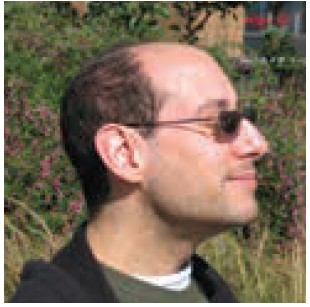
By Gary M. Kramer–
Two bingeable miniseries depict queer life in the past, illustrating how gay characters lived double lives during a period when it was dangerous to be out. Both are worth a look.
Fellow Travelers, which premiered October 29 on Showtime, is adapted from Thomas Mallon’s historical novel. It recounts the relationship between Hawkins “Hawk” Fuller (Matt Bomer, who also produced) and Tim Laughlin (Jonathan Bailey) over the span of several decades of political upheaval and social progress.

The show opens in 1986, when Hawk gets word that Tim is dying of AIDS in San Francisco. The series toggles back and forth between the eras to depict their relationship, which is filled with intense passion as well as intense heartbreak.
Hawk, who works in the State Department, first meets Tim in 1952, and helps the “good Catholic boy” get a job working for Senator McCarthy (Chris Bauer). As a thank you, Hawk asks Tim to “do research” for him as Hawk is close to the liberal Senator Wesley Smith (Linus Roache), who is on the anti-Communist hearing subcommittee with McCarthy, Roy Cohn (Will Brill), and David Schine (Matt Visser). The political intrigues and power struggles relating to the hearings are fascinating as McCarthy, Cohn, and Schine have a series of reversals of fortune as manipulated by Hawk, with Tim’s occasional assistance.
A parallel storyline features Marcus (Jelani Alladin), who is Black and gay, dealing with racism and homophobia in the 1950s. He is denied entry to a club and treated disrespectfully in his career—as when he gets a temporary gig at The Washington Post. As Marcus dates Frankie (Noah J. Ricketts), a drag performer, their relationship experiences a series of ups and downs. These two men take different approaches to queer activism; Frankie is very confrontational, while Marcus is more subdued.
Fellow Travelers shows the difficulties gay men and women had in the post-World War II era. One sequence depicts Hawk’s assistant, Mary (Erin Neufer), and her girlfriend, Caroline (Gabbi Kosmidis), worrying when Caroline is reported as being a suspected homosexual. Another scene has Hawk having to take a lie detector test to prove he does not have same-sex desires. In addition, a subplot has a character arrested for performing an obscene act in public and is sent to an institution for conversion therapy. The lies and double lives these individuals had to maintain to “pass” at work, home, and in society are depicted with aplomb.
However, the series is best when it stays in the 1950s. The last three episodes try to cram too many plots and points into an hourlong episode. Once the story shifts to the 1960s, the sexual tension between Tim and Hawk slackens. Another episode, set in 1978, unfolds largely on Fire Island, where Tim visits Hawk, who is medicating his grief with drink, drugs, and mindless sex following a family tragedy.
As the gay liberation movement is gaining steam, the verdict in the Harvey Milk trial is used as a backdrop, and it fuels the Marcus/Frankie storyline, which includes Marcus taking in a homeless queer student.
Fellow Travelers ends in 1986, during the AIDS crisis. Tim asks Hawk to help him get the attention of the Governor for AIDS spending. The episode shows how the relationship between Tim and Hawk ebbs and flows prior to a final encounter that is quite moving and may induce tears. Despite its flaws, the series is both addictive and informative.

Paris Police 1905 is an atmospheric miniseries available November 14 on MHz Choice. This sequel to Paris Police 1900—and one does not have to have seen the first series to follow this one—tracks several queer characters and storylines.
Antoine Jouin (Jérémie Laheurte) is a policeman on the research brigade who alienates many of his colleagues, but has the respect of his boss, Commissaire Cochefert (Alexandre Trocki). He is assigned the case when a corpse is discovered in the Bois de Boulogne, a wooded area in Paris where gay men have trysts. The body is identified as Paul Cétinet (Nathan Betoux), an “invert/pederast.” The authorities are intent on proving that Paul was not murdered—despite four gunshots to the head—but committed suicide. Antoine believes otherwise and wants to solve the crime.
While checking out the Bois de Boulogne, Antoine meets Félicien (Johann Cuny), a gay man, who thinks Antoine is cruising him. Their encounter ends with Félicien acting as an informant for Antoine. However, their connection has repercussions when Antoine is later accused of being homosexual.
Meanwhile, Adolphe Steinheil, a painter, is suffering from syphilis, unbeknownst to his wife, Marguerite (Evelyne Brochu). Their marriage is mostly loveless; Adolphe has been having an affair with Paul, his muse, whom he has sketched nude many times. That Paul may have had syphilis as well may explain Paul’s death, as the disease, treated by a Doctor Verlot (Laurent Poitrenaux), causes insanity. A scene late in the series has Paul’s mother (Anne-Lise Heimburger) describing how her late son “was corrupted.”
As the series unfolds, over six hourlong episodes, there are explicit gay photographs, organized group blackmail, and other salacious goings on. Paris Police 1905 looks gorgeous, with fabulous period costumes, and set design. (The characters use old-fashioned telephones, typewriters, and wear pince-nez, which lend a sense of authenticity to things.)
How the story plays out is ultimately more intriguing than suspenseful, but this classy series is highly transportive.
© 2023 Gary M. Kramer
Gary M. Kramer is the author of “Independent Queer Cinema: Reviews and Interviews,” and the co-editor of “Directory of World Cinema: Argentina.” He teaches Short Attention Span Cinema at the Bryn Mawr Film Institute and is the moderator for Cinema Salon, a weekly film discussion group. Follow him on Twitter @garymkramer
Film
Published on November 2, 2023
Recent Comments